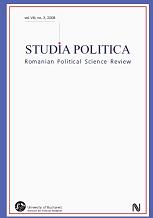Politicile de reprimare a „meseriei cerşutului“ în prima jumătate a secolului al XIX-lea
Policies of Repression of ”Begging as An Occupation” during the First Half of the 19th Century
Author(s): Ligia Livadă-CadeschiSubject(s): History
Published by: Editura Universităţii din Bucureşti
Keywords: political authorities; Wallachia; beggars; social care; repression
Summary/Abstract: At the begining of the 19th century, the political authorities of Wallachia were using two apparently different approches, but in complementary, regarding the beggars, namely social care and repression. Their common denominator is that they intended to unconditionally forbid begging. By examining public archive documents, we intend to present the theoretical organization of a new public social care institution (the beggars’ institute) and the way it practically functioned. The beggars’ institute was an establishment with a double mission: care and repression. Different records and documents about the institute’s functioning (administrative correspondence, demands of confinement or releasing, etc.) allowed us to examine the beneficiaries of this type of social care and the confinement procedures; the institute’s internal organization (its security or its curative capacities); the abuses authorities sometimes committed when hasting to keep beggars away from the public space; releasing conditions from the institute; perceptions (of ordinary people or of authorities) on the institute and the beggars.
Journal: Studia Politica. Romanian Political Science Review
- Issue Year: 8/2008
- Issue No: 3
- Page Range: 541-562
- Page Count: 22
- Language: Romanian

